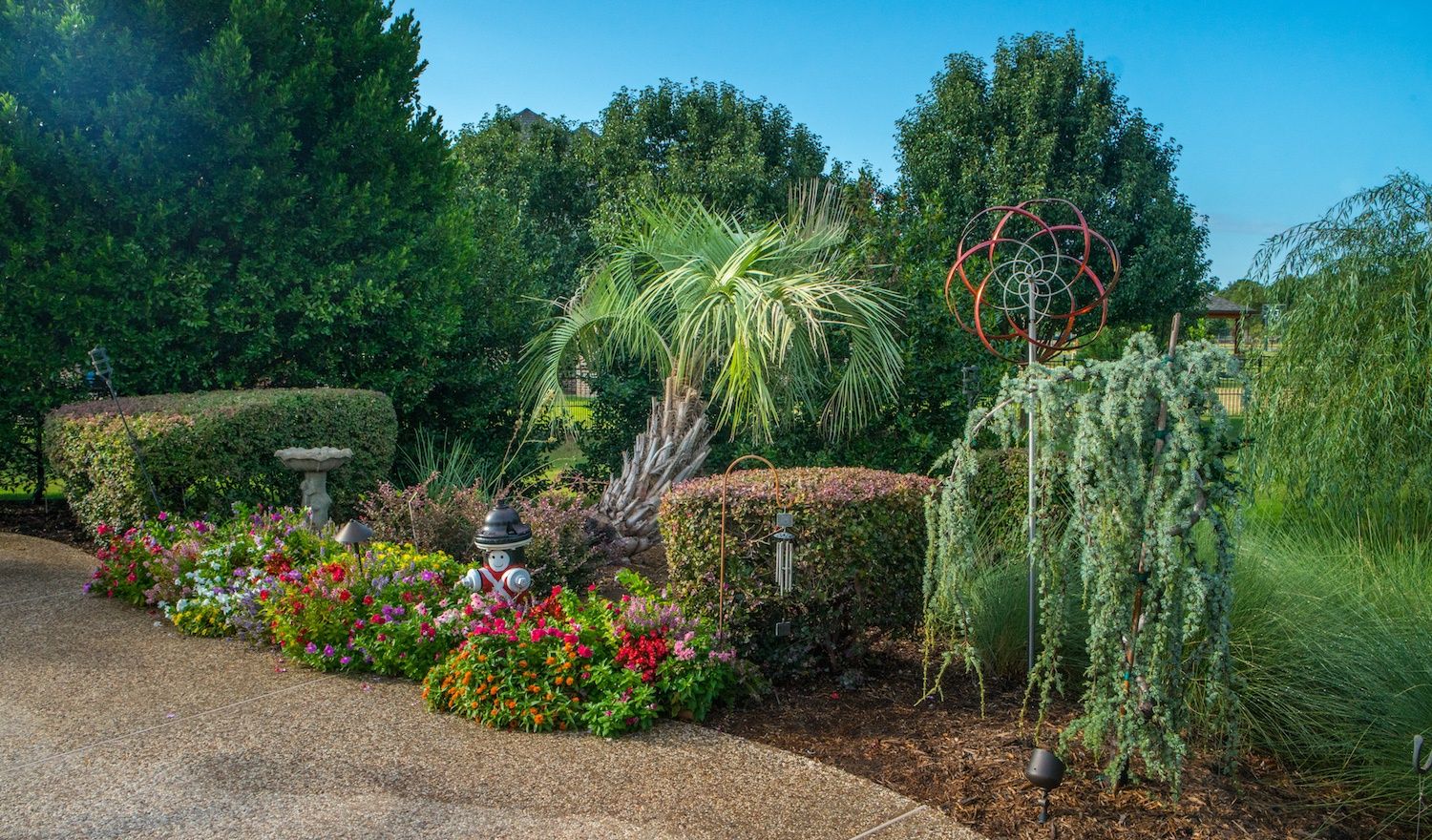
Mulching your plant beds has quite a few benefits. It not only looks aesthetically pleasing (making your plant beds look fresh and clean), but it also helps the soil to retain moisture and an optimal temperature, delivers nutrients down into the ground, and it helps to suppress weeds.
Since homeowners hate finding weeds in their plant beds, this last benefit is often really important to them. Weeds are not only unsightly and frustrating, but they can also be thieves. They steal water, nutrients, and even sunlight from your desired plant material and can cause them to struggle. The last thing that you want is to have a plant bed with both weeds and desired plants competing with one another.
Mulch can play a valuable role in preventing these struggles.
But you might be wondering about what is the best mulch to use. Homeowners are often surprised to learn that in the mulch world, there are many different types of products that range in color, quality, and durability.
In this article, we’ll talk about the best type of mulch for weed control and mulching in general. In order to get the most out of this service, it’s imperative that you’re using a high-quality product and implementing best practices.
There’s more than one way to finish a plant bed and mulch isn’t your only option.
In North Texas, both mulch and stone make popular materials for plant beds. We’ve written a previous article comparing mulch vs. stone for landscaping.
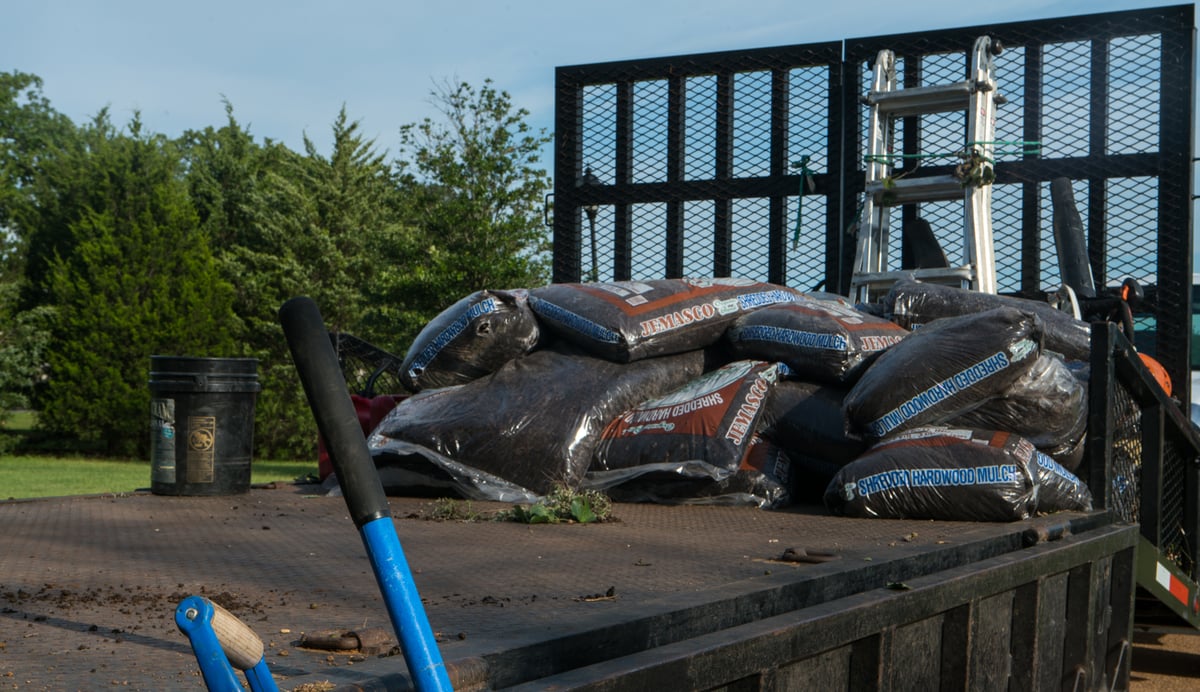
The main benefits of using stone are that it doesn’t need to be replaced every year and it’s low maintenance.
But stones do not do as good a job at suppressing weeds and there are limited plant choices that will even grow in a stone bed. That’s because stones can heat up and make the ground too hot for many types of plants to grow.
Stone also offers no benefits to plant material like mulch does. Mulches break down and add nutrients to the soil over time.
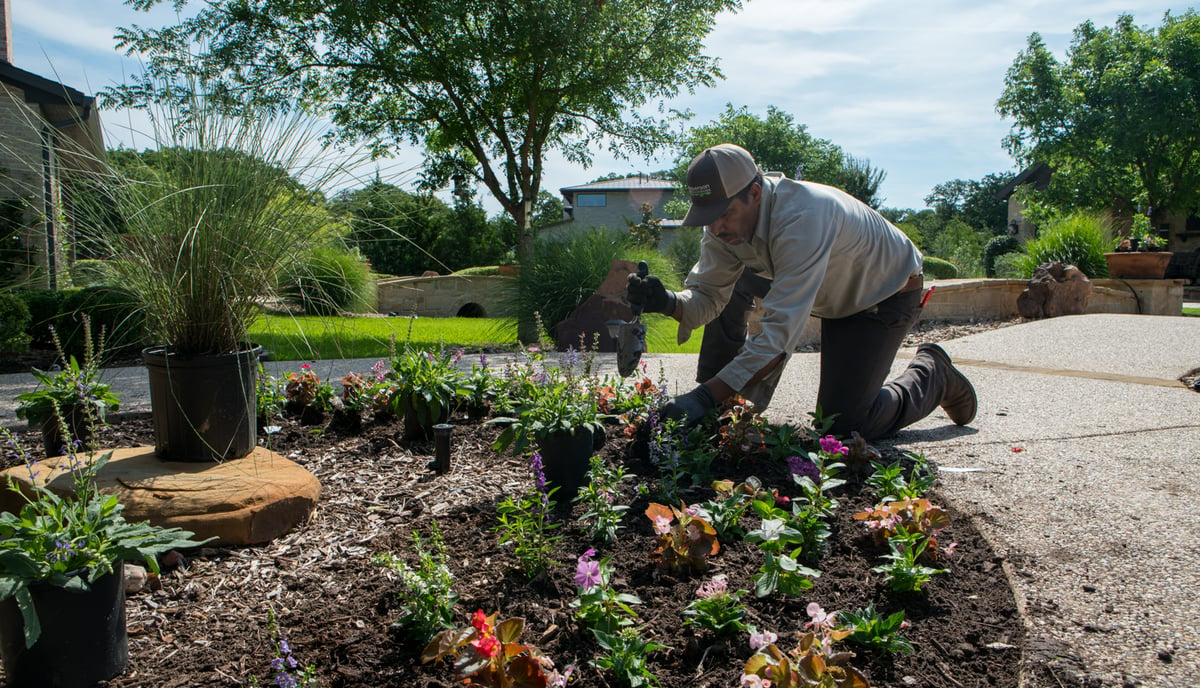
But there are also many choices when it comes to selecting a mulch.
One thing to keep in mind is that all mulches are not created equally. In other words, the bagged mulch you’re picking up at the hardware store could be much lower quality than what a professional landscaper is using (assuming you’re working with a reputable professional who invests in high-quality materials).
As far as the best mulch for weed control, keep in mind that cheap mulches made from ground-up plant material could even potentially contain weed seeds! You could be digging your own grave if you’re trying to mulch your plant beds to prevent weeds and end up introducing them with low-quality recycled mulch that ends up containing ground-up plant material.
It’s important to keep in mind that quality matters when it comes to mulching. That might mean paying a little bit more, but the results will be worth it.
So, what is the best mulch to use?
At Grassperson, we do install various types of mulch. But our go-to, standard hardwood mulch is an organic blend, premium hardwood mulch that has some brown dye added. It is not reused and it is made from 100 percent organic materials.
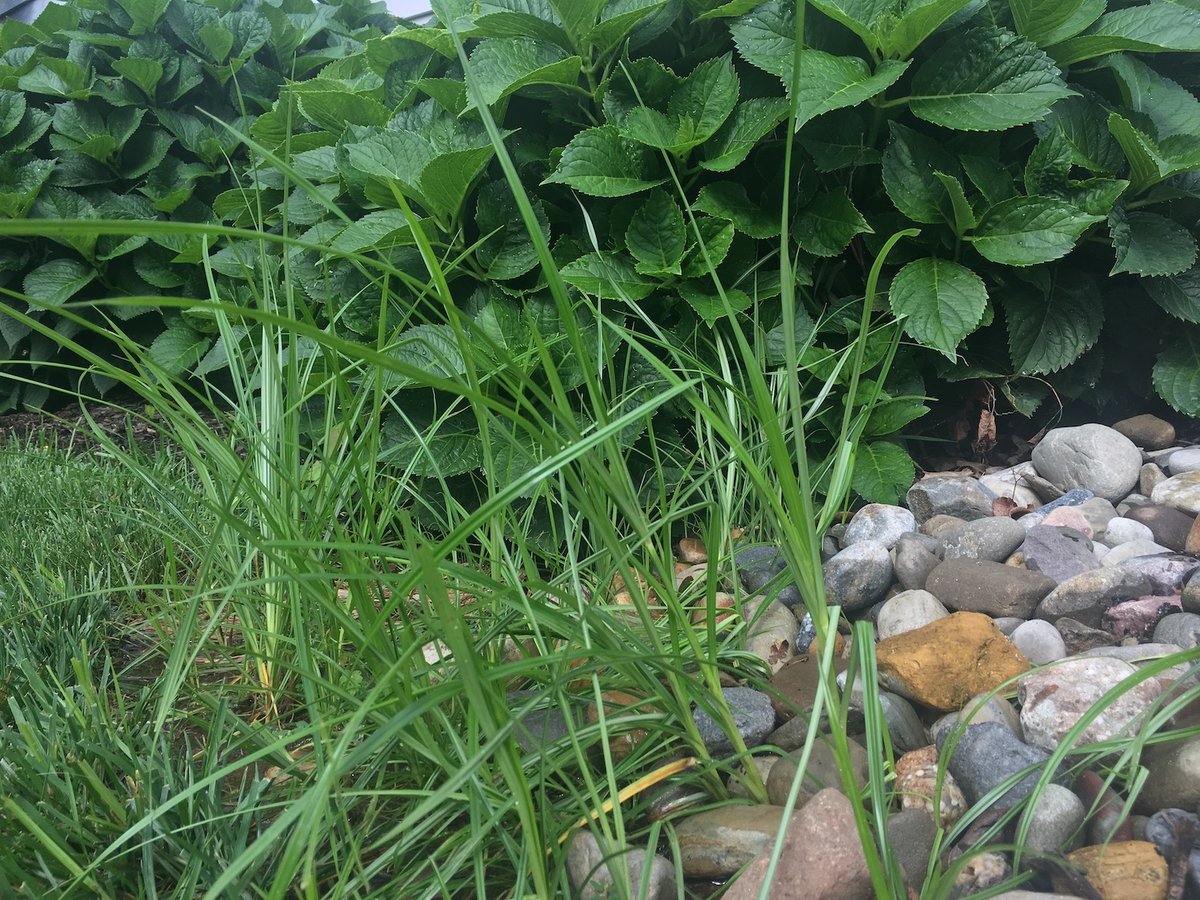
That’s critical in terms of what we’ve talked about above. You want to make sure you’re using a mulch that will add nutrients to the soil and won’t introduce weed seeds that will end up growing in your plant beds.
It’s important to note that we typically install this mulch using 3 cubic feet bags. The products that you would buy in a store are typically sold as 2 cubic feet bags. This confuses people who are comparing the cost.
At Grassperson, we also sell bulk, premium hardwood that is slightly longer-lasting and dyed cafe brown. And, we sell Cypress, Cedar, and dyed/colored mulches. The Cypress and Cedar materials are all-natural and are not dyed or colored.
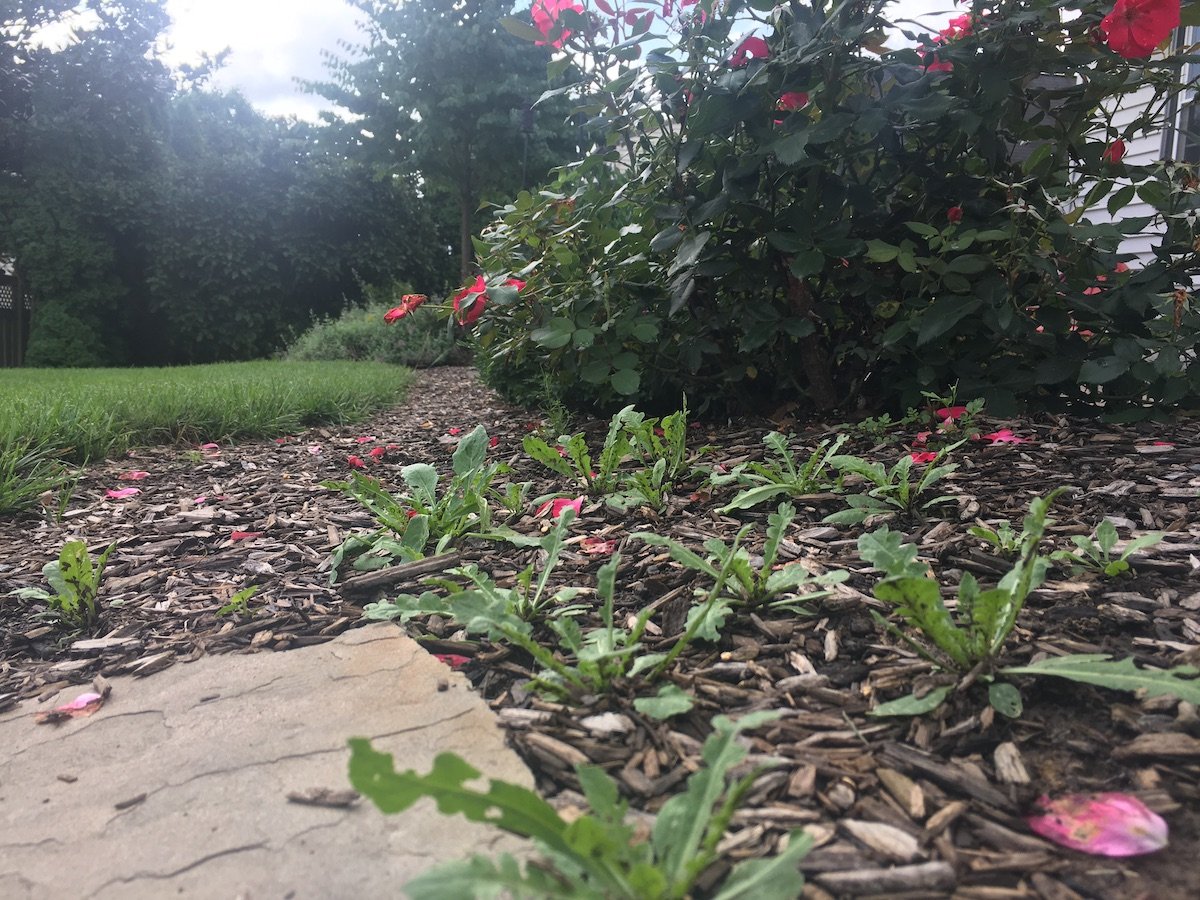
All of these products can help control weeds but the hardwood, non-recycled mulches will not break down as quickly, giving you longer-lasting value. The high-quality hardwood mulches also give you the most value in terms of introducing nutrients into the plant bed when they do break down over time.
It’s helpful to understand that the way in which plant beds are prepped ahead of mulch application is a key to weed control success. There are many mulches that will work for weed suppression but if you fail to prep the plant bed the right way, you could still have weed trouble.
Unfortunately, many landscapers are just going to apply mulch with zero bed prep. Mulch helps suppress weeds by blocking their access to sunlight. But aggressive growing weeds will be able to break through over time.
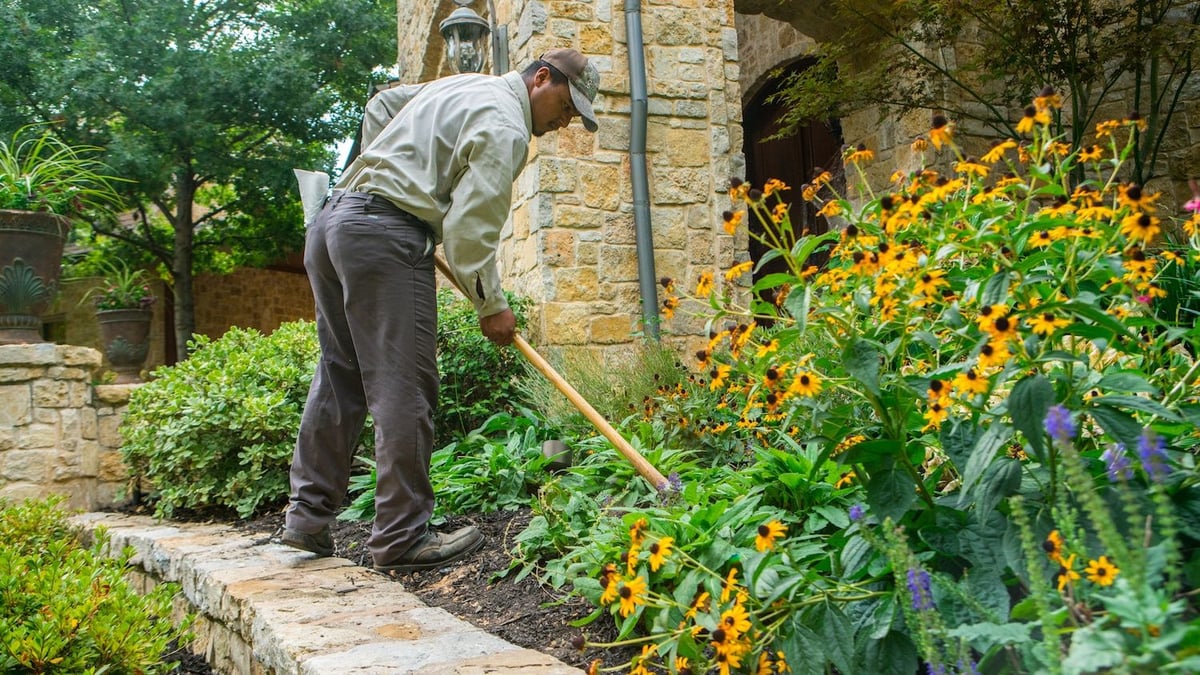
That’s why, at Grassperson, we always pull all visible weeds before mulching the plant bed.
We also offer to apply a granular pre-emergent herbicide that will help further control future weeds. These steps play a huge role in keeping weeds out of plant beds in the first place.
Another best practice when it comes to suppressing weeds is applying mulch as a two-inch layer. In addition to preventing access to sunlight to any weed seeds already in the soil, you’re also creating a barrier for any weed seeds that get carried into the flower bed by minimizing contact with the soil.
Seed-to-soil contact is also necessary for germination. So, mulch is helping you from the top and the bottom of your plant bed!
Weeds are aggressive, opportunistic growers, and even with all of your best efforts, you might still see them popping up from time to time.
One of the reasons why weeds are so prolific is that they require very little to survive. They don’t need as much water as many other types of plants and they can even thrive in unhealthy soil. Weeds also tend to grow faster and with more vigor than healthy plants, so they’ll out-compete your plant material if given the chance.
That’s why you still need to take steps to kill weeds in flower beds when they do pop up.
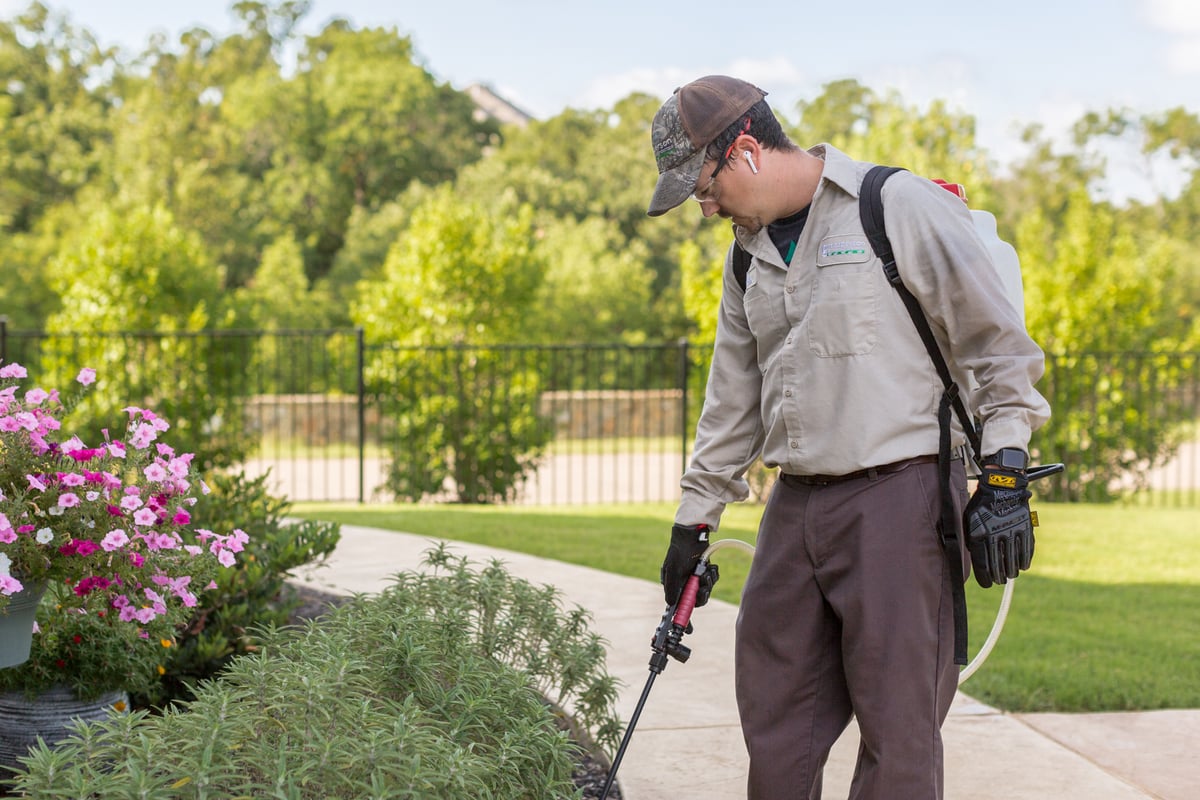
A landscaper who takes care of flower beds can use both pre- and post-emergent controls to try and keep weeds out of your beds.
Pre-emergent herbicides are effective on weeds that germinate and spread through seeds. Pre-emergents help to create a barrier that prevents germination from happening.
Post-emergent controls work on weeds that do not reproduce via seed or that are already sprouted. Spot-spraying weeds with post-emergent control can help kill these weeds.
Weed control can often feel like an endless task. Even when you take all the right steps and use the best mulch for weed control, they can still keep coming back.
This is a reason why you might want to hand your plant bed care over to a pro.
Your best defense (and offense) against weeds in your plant beds will be a multi-faceted approach that includes pre- and post-emergent herbicides as well as mulching. We recommend mulching twice a year (spring and fall). This not only helps with your effort to control weeds but keeps your plant beds looking their best.
Spring and fall are two popular times for new flower installations and you can finish that off with professional mulching. Of course, some clients do prefer mulching more regularly. It’s a great way to freshen up the look of your landscape.
There’s also a strong argument for using a weed barrier fabric in your plant beds to help with your weed control efforts. Weed barrier landscape fabric works to discourage weeds by blocking sunlight from reaching weed seeds in the first place.
But as with most things, there are pros and cons. It’s important that weed barrier fabric is installed properly in order to be effective. If it’s not, it can be more of a hassle than a help. You should talk with your landscape professional about whether weed barrier fabric makes sense for your property (particularly if you are installing a brand-new plant bed).
Keeping up with weeds in your plant beds can be a lot of work. There’s no doubt it can feel like an endless cycle that sometimes feels like it’s not making any progress. Weeds can be a huge source of frustration and stress and they can take a lot of time and effort to deal with.
For that reason, we recommend partnering with a professional.
A pro can help you with the best mulch to use and also make sure it’s installed properly. They’ll also implement best practices and other weed control efforts that will help keep weed growth at bay.
When you partner with a professional, you have a better chance at success. They will make sure that the right weed control products are applied at the right time to maximize the effort.
You don’t have to let weeds be a continued source of frustration for your North Texas property. With an expert on your side, your plant beds can continue to look and perform their best without so many weedy worries.
We understand how frustrating it can be to fight weeds that crop up in your landscaping. We can help you manage weeds in your landscape and get the lawn you deserve with a total landscape maintenance program that takes a holistic approach. Get a Free Quote, then you can enjoy the best lawn on the block!
These Stories on Landscape